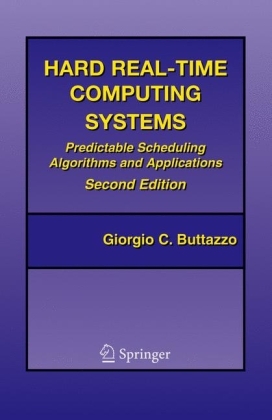Read more
Hard Real-Time Computing Systems: Predictable Scheduling Algorithms and Applications is a basic treatise on real-time computing, with particular emphasis on predictable scheduling algorithms. It introduces the fundamental concepts of real-time computing, illustrates the most significant results in the field, and provides the essential methodologies for designing predictable computing systems which can be used to support critical control applications.
This volume serves as a textbook for advanced level courses on the topic. Each chapter provides basic concepts, which are followed by algorithms that are illustrated with concrete examples, figures and tables. Exercises are included with each chapter and solutions are given at the end of the book. The book also provides an excellent reference for those interested in real-time computing for designing and/or developing predictable control applications.
List of contents
A General View.- Basic Concepts.- Aperiodic Task Scheduling.- Periodic Task Scheduling.- Fixed-Priority Servers.- Dynamic Priority Servers.- Resource Access Protocols.- Handling Overload Conditions.- Kernel Design Issue.- Application Design Issues.- Real-Time Operating Systems and Standard.- Solutions to the Exercises.- Glossary.
About the author
Giorgio Buttazzo is Full Professor of Computer Engineering at the Scuola Superiore Sant'Anna of Pisa. He graduated in Electronic Engineering at the University of Pisa in 1985, received a Master in Computer Science at the University of Pennsylvania in 1987, and a Ph.D. in Computer Engineering at the Scuola Superiore Sant'Anna of Pisa in 1991. From 1987 to 1988, he worked on active perception and real-time control at the G.R.A.S.P. Laboratory of the University of Pennsylvania, Philadelphia. From 1991 to 1998, he held a position of Assistant Professor at the Scuola Superiore Sant'Anna of Pisa, where he founded and coordinated the RETIS Laboratory on real-time systems. From 1998 to 2005, he held a position of Associate Professor at the University of Pavia, where he directed the robotics laboratory of the Computer Science department. His main research interests include real-time operating systems, dynamic scheduling algorithms, quality of service control, multimedia systems, advanced robotics applications, and neural networks.

